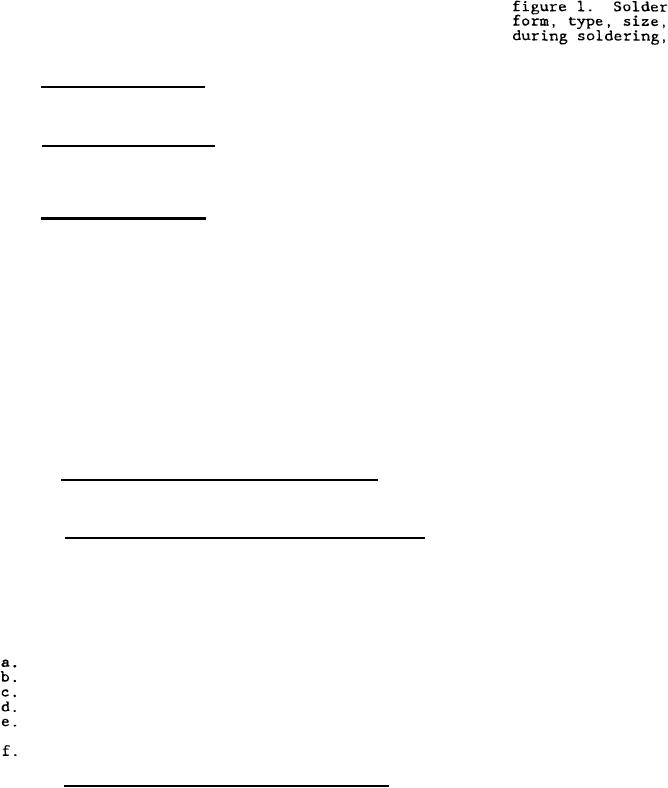 |
|||
|
Page Title:
Polyamide, rigid plastic fuel tanks |
|
||
| ||||||||||
|
|  MIL-T-46786B
welded lap joints, machine locks, or equivalent, as shown in
shall conform to QQ-S-571, composition range SN 30 TO SN 70,
and condition optional. When a corrosive flux has been used
the residue shall be removed.
3.6.2 Type II fuel tanks. Type II fuel tanks shall be constructed of prime
pickled, hot-or cold-rolled sheet or plate, steel or steel alloy (see table I).
Joints and intersections shall be welded as specified herein.
3.6.3 Type III fuel tanks. Type III fuel tanks shall be constructed of
aluminum alloy (see table 1) conforming to the ASTM designations for aluminum
sheet and plate. The aluminum alloy shall have a yield point of not less than
26,000 psi for sheet and plate. Joints and intersections shall be welded.
3.6.4 Type IV fuel t anks. Type IV fuel tanks shall be constructed of
plastic conforming to current standards of the plastic fuel tank industry and
as specified herein (see table I and 3.11). The specific plastic material used
shall be as specified (see 6.2). Plastic fuel tank s shall conform to the
following minimum requirements:
The exterior (depth of .004 plus or minus .001 inch) surface of all
a.
fuel tanks which are not pigmented with at least 2.5 percent carbon
black plus or minus 0.25 percent shall contain 0.5 percent ultraviolet
ray deterioration preventative.
b.
The plastic material shall contain a minimum of 0.025 percent
concentration of antioxidant. This is not required in nylon polyamide.
c.
Plastic fuel tanks shall be marked "CAUTION: DO NOT APPLY DIRECT HEAT
OR FLAME TO THIS PLASTIC FUEL TANK."
Quality of exterior surface shall be smooth to the extent that lows
d.
shall not exceed 0.050 inch in any direction when bridged by a 4-inch
long straightedge.
3.6.4.1 Polyamide, rigid plastic fuel tanks. When specified (see 6.2),
type IV plastic fuel tanks shall be constructed of molding plastic, conforming
to ASTM D 4066, PA212.
3.6.4.2 Fiberglass-reinforced plastic fuel tanks. When specified (see 6.2),
type IV plastic fuel tanks shall be constructed of fiberglass-reinforced
plastic. The fiberglass-reinforced plastic material shall contain not less
than 40 percent fiberglass or glass filament strands or yarns of uniform
length, randomly distributed, and bonded with resins conforming to or exceeding
MIL-R-7575 grade, class, and form optional or MIL-R-9299, grade optional. When
tested in accordance with MIL-R-7575 or MIL-R-9299, the fiberglass-reinforced
plastic materials shall conform to the following minimum requirements:
Tensile strength shall be not less than 15,000 psi.
Flexural strength shall be not less than 25,000 psi.
Flexural modulus at 73 F shall be not less than 1,000,000 psi.
Flexural modulus at 180 F shall be not less than 140,000 psi.
Modulus and flex of retention shall be 50 percent after 2 hours'
conditioning in boiling water.
Flammability shall comply with ASTM D 635 (nonburning).
3.6.4.3 High density polyethylene fuel tanks. When specified (see 6.2),
plastic fuel tanks shall be constructed of high density polyethylene conforming
to the minimum physical requirements listed in table IV and as specified herein
(see table I):
|
|
Privacy Statement - Press Release - Copyright Information. - Contact Us |